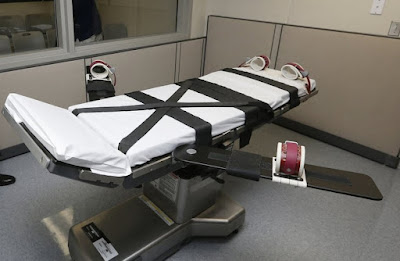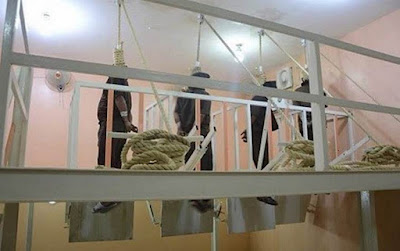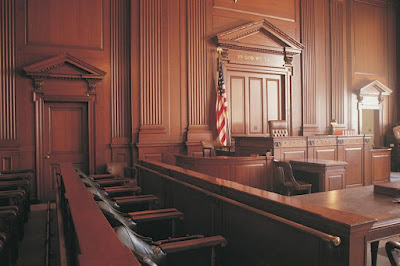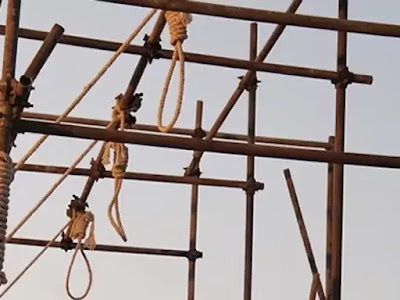 |
Main gallows at Tokyo
Detention Center |
Along with some states in America, Japan is the only other developed country to still have a death penalty. While most countries have abolishing the death penalty Japan is sentencing more of its citizens to death. However Japan has recently
released the world's longest serving death row inmate. After new DNA tests were finally allowed, a Japanese judge freed Iwao Hakamada after 45 years of solitary confinement. He was convicted of murdering an entire family back in 1968 but the judge found he was probably sentenced to death on falsified evidence. The case has sparked a long overdue debate on the death penalty and critics say its time to end the secretive and cruel practice in Japan.
Professor Jeff Kingston from Tokyo's Temple University has been working on the issue for the last two decades.
He spoke to our North Asia correspondent Matthew Carney.
JEFF KINGSTON: Research shows that it does not act as a deterrent to serious crime. The problem we see is that in recent years, the courts are increasing the number of death sentences that they're handing out amid growing concern that a lot of the people who have been condemned to death, actually there have been judicial abuses and police prosecutors have railroaded suspects, they've, you know, dossed-up the evidence.
MATTHEW CARNEY: Mr Hakamada was recently released last March. That case highlighted a lot of deficiencies in the justice system and obviously death row cases. Just talk about that.
JEFF KINGSTON: Well, the big issue that comes out, that emerges from many of the recent cases that have been overturned, is that the convictions are based on the confession. Confessions are king.
Courts will strongly act against any defendant who has confessed to the crime. So one wonders why so many defendants are confessing. And apparently in the case of Hakamada and many other death row inmates, they come under intense pressure. They can be held for 23 days at a time, and this detention can be extended on and on.
So they're isolated, they're under pressure, it appears that police use heavy-handed tactics; and the police basically say to them 'sign this and you can leave; as long as you don't sign a confession, you're stuck here'.
So they put them under intense psychological pressure and eventually most people break and they'll sign anything.
And so what we've found is that because confessions are the gold standard in death penalty cases that this leads the police to engage in wrongful practices that railroad many of these defendants. And so later it's come to light in the case of Hakamada, but many other people as well over the last 20 years, that the evidence was faked also by the prosecutors and police conspired to put these people away.
And now we understand why these people have such a high conviction rate.
MATTHEW CARNEY: It's 99 per cent or something, isn't it? And that's part of the problem, is that the prosecution, unlike many other industrialised countries, have such a high success rate and have access to retrial.
JEFF KINGSTON: Well the retrial concept is - it's amazing isn't it, if you think about it. If the court finds that the defendant is not guilty, the prosecution can then appeal to a higher court, and so really the whole system is weighted against the defendant. So I think in Japan it is one of the few cases where you can appeal and have the innocent verdict in the death penalty overturned.
MATTHEW CARNEY: Mr Hakamada's case is not an exception here. I mean, there are many others, and I think there's currently 130, 131 on death row, that declare innocence, and their cases are being actively investigated for miscarriage of justice, is that right?
JEFF KINGSTON: I think a number of these cases certainly are, and it does seem clear that many were forced to sign confessions under duress. And so one of the options that reformers have suggested is why don't we videotape the interrogation so that would remove any doubt that untoward methods were used? The Justice Ministry has resisted this and has refused to allow videotaping of the entire interrogation.
MATTHEW CARNEY: The other issue is that once they're on death row is that they don't find out when they're going to be executed, and I think on average most death row inmates spend a decade inside, so every day they're waking up thinking this could be their last.
JEFF KINGSTON: It's a terrible system. They're kept in isolation, these tiny toilet-sized cells. They have very little interaction with anybody, and they don't know, and the relatives don't usually find out until after they've been hung.
So this is another problem in the system, and it's all swathed in secrecy, and I think that the government tries to provide as little information as possible about the whole death penalty issue.
MATTHEW CARNEY: So why the secrecy though? I mean, Japan in many ways is an open transparent democracy, but they don't tell family members when their loved ones have been executed. They don't inform the public or when, or where. Why the secrecy here, do you think?
JEFF KINGSTON: I think that the more that the system becomes transparent, the more doubt has grown about it. So I think the justice ministry realises that to sustain the system, they have to provide as little information as possible, and they try to, I think, manipulate public attitudes by suggesting that there's increasing serious crime rates when in fact there aren't.
ELIZABETH JACKSON: And that's Professor Jeff Kingston speaking there to our correspondent in Tokyo, Matthew Carney.
Source: Australian Broadcast Corporation, May 11, 2014
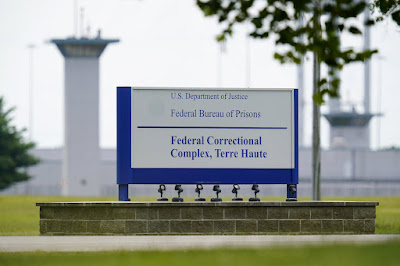

.jpg)

